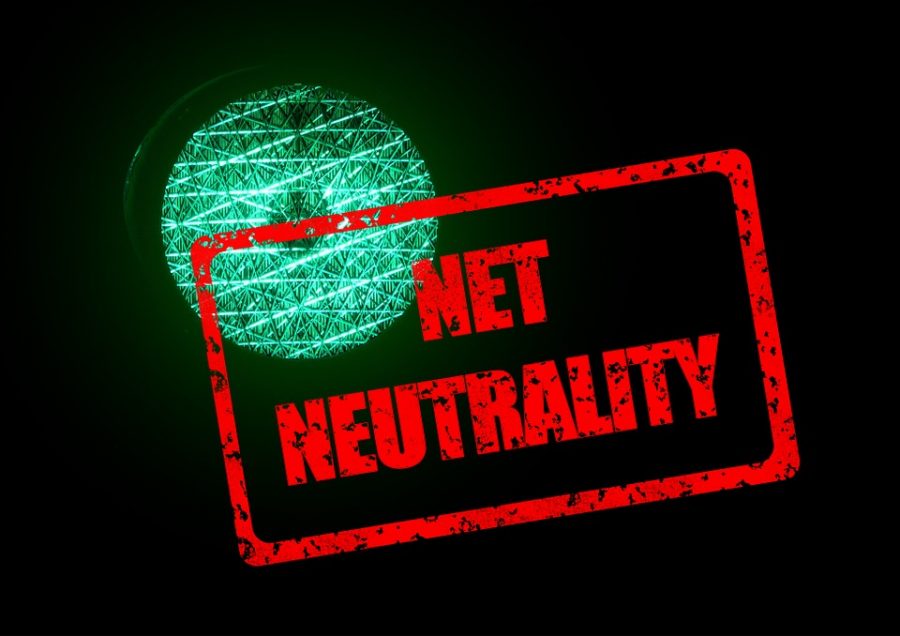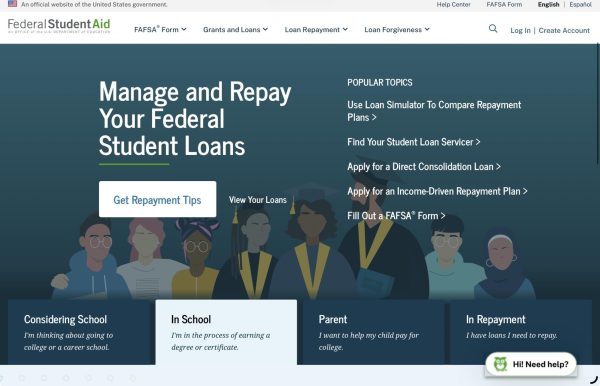What’s the deal with net neutrality?
After a long day of school, you turn on your computer and you are aching to surf the web. Suddenly, you are hit with a pop-up! Another ad, you think to yourself, except this time the ad has no close button. Annoyed, you read the huge text that is between you and your right to a free internet: “Site restricted! Upgrade to the premium package?” This cannot happen because your internet service provider (ISP) cannot block access to any site, nor alter the speeds of your internet to cater to certain sites. Net neutrality has provided these rights, and now, it is in danger.
The term net neutrality refers to having an open internet, as in no internet service provider (such as AT&T or Comcast) should interfere with what sites you use or go as far as to block sites and favor others. The open internet currently is being protected by policies set back in 2015 under the Obama administration’s suggestion to consider both wireless and wired internet to be public utilities. This would then protect the internet under Title ll of the Communications Act of 1934, in which the term and ideology of net neutrality originated.
The act was formed back in the 1930s era, and with it was born the Federal Communication Commission (FCC). The FCC was and still is in charge of regulating interstate communications. They work to ensure that services like radio, television, satellite, etcetera are accessible to the general public. The act itself was split into seven major titles and like the FCC served to regulate communications.
In 1996, major revisions to one of the titles (Title II) would bring about the Telecommunications Act. The act was formed when the popular telecommunications company AT&T was close to having a monopoly in the industry. AT&T, knowing well that there was no competition, altered its prices depending on who it was selling its service to. The company was controlling phone traffic, and the FCC was going to have none of it. They revised the title and enforced the common carrier laws, which served to ensure that companies treated all consumers and products equally.
Sound familiar? The internet today has turned into the phone industry back in 1996, with the FCC and more specifically the chairman Ajit Pai recently putting the repealing of net neutrality to a vote. Five members each voted, with three voting within party lines, and two opposing. The FCC voted to repeal net neutrality, but the fight is not over. While the FCC chose to repeal it, it is Congress that puts the ruling into law. So with that, the battle now continues in Congress, where the ultimate decision and fate of the internet as we know it will be announced.
If net neutrality was repealed, it would be giving the ISPs some dangerous powers. Without the protective policies, your ISP can now favor certain websites by providing faster internet lanes for them and destroying some websites by creating slow lanes. They would then have the power to block websites and promote their own websites for profit. Right now, various companies are voicing their stances, with AT&T, Comcast, Verizon and Spectrum supporting the repeal, and popular sites such as Netflix, Vimeo, and Reddit advocating for net neutrality. Additionally, a popular and very possible side effect to come from the repealing would be the selling of premium packages or bundles to have the power to access some websites faster or even the power to access these sites at all. ISPs currently say that if net neutrality was repealed, it wouldn’t do anything that the public claims they would do. However, while the companies claim they won’t do it, the fact is that if the policies are done away with, they can.

This is what a future internet ad may look like without net neutrality.

Fun Facts:
I really love the color purple
I probably write more than I speak
Ask me about my favorite gift





































